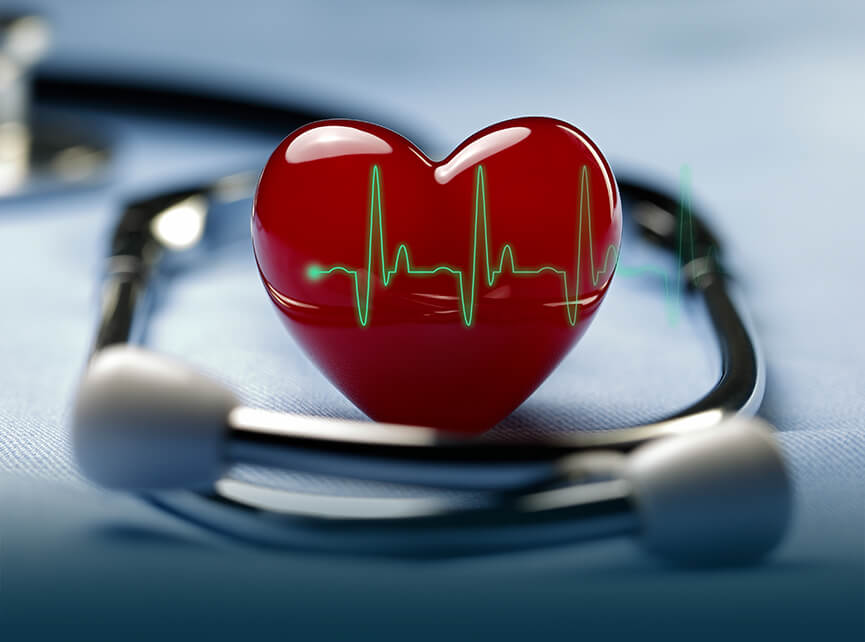How Dr Garcia's office supports long-term heart wellness with expert care
How Dr Garcia's office supports long-term heart wellness with expert care
Blog Article
Understanding the Significance of Cardiology in Modern Health Care Providers
Cardiology plays a crucial function in modern-day healthcare, particularly as heart problem proceeds to be the leading source of death worldwide. Breakthroughs in diagnostics and therapy have actually changed person treatment, making it possible for earlier interventions and improved outcomes. Furthermore, the shift towards precautionary cardiology equips individuals to manage their health proactively. As technology remains to develop, the combination of ingenious services may even more redefine cardiology's impact on public health, motivating a more detailed exam of arising patterns and their implications.
The Prevalence of Heart Problem and Its Influence on Public Health And Wellness
Heart illness remains the leading reason of fatality globally, its impact expands far past private patients to influence public health systems and economies. The high prevalence of heart condition puts a considerable strain on medical care resources, demanding enhanced funding for recovery, treatment, and avoidance programs. Public health campaigns must attend to risk aspects such as excessive weight, cigarette smoking, and less active way of lives, which add significantly to the climbing occurrence of heart conditions.Moreover, the economic problem connected with heart problem is immense, including not just straight medical expenses however additionally indirect costs connected to shed productivity and premature death. Areas face challenges in handling these expenses, typically leading to differences in medical care access and end results. As the populace ages and lifestyle-related threats proceed to rise, the necessity for effective cardiology treatments becomes vital. Attending to heart illness is not just an issue of specific health and wellness however additionally an essential public health top priority.
Advances in Cardiac Diagnostics and Imaging Techniques
Current innovations in heart diagnostics and imaging methods have actually reinvented the area of cardiology, improving the ability to find and keep an eye on cardiovascular disease. Methods such as cardiac MRI, CT angiography, and echocardiography have come to be significantly innovative, supplying comprehensive photos of cardiac frameworks and features. These modalities permit the very early recognition of problems like coronary artery illness, heart failure, and valvular disorders.Moreover, advancements in non-invasive diagnostics, such as wearable modern technology and remote surveillance devices, have actually equipped clients and healthcare service providers. These tools promote real-time tracking of heart rhythms and other crucial indications, resulting in prompt interventions. Additionally, expert system is being incorporated right into imaging analysis, enhancing accuracy and effectiveness in diagnosis.
Technologies in Treatment Alternatives for Heart Issues
Recent developments in cardiology have actually resulted in substantial developments in therapy options for heart disease. These include innovative medical techniques that improve step-by-step outcomes and arising drugs that provide brand-new avenues for therapy. As the area develops, these technologies play an essential duty in improving client treatment and results.
Advanced Surgical Techniques
Developments in medical strategies have transformed the landscape of cardiology, supplying new hope for individuals with heart problems. Minimally invasive procedures, such as catheter-based interventions, have actually greatly decreased healing times and hospital stays. Methods like robotic-assisted surgical procedure enhance precision, enabling specialists to browse complex anatomical structures with greater accuracy. Moreover, innovations in imaging modern technology help with real-time visualization during procedures, enhancing results. Transcatheter aortic valve substitute (TAVR) exhibits a breakthrough in treating aortic stenosis, allowing valve replacement without open-heart surgery. Additionally, hybrid methods that combine surgical and catheter-based approaches provide tailored solutions for numerous heart problems. These sophisticated surgical techniques not only enhance person safety and security yet likewise broaden treatment options, emphasizing the critical role of development in contemporary cardiology practices.
Emerging Therapies and medications
As the landscape of cardiology remains to advance, arising treatments and medications play a pivotal duty in improving treatment alternatives for heart conditions. Technologies such as unique anticoagulants and progressed lipid-lowering representatives have changed the administration of heart diseases, considerably decreasing patient morbidity and death. Furthermore, the development of genetics therapies and regenerative medication offers encouraging avenues for dealing with problems formerly considered irreparable. Scientific trials are continuously revealing the effectiveness of these therapies, pressing the boundaries of typical treatments. The combination of electronic health innovations promotes personalized medicine, allowing for customized therapy strategies based on genetic and way of life aspects. Jointly, these developments emphasize the dynamic nature of cardiology, improving client results and redefining criteria of care in modern health care.
The Function of Preventive Cardiology in Person Care
Preventive cardiology plays a necessary duty in patient care by concentrating on the identification of danger aspects that add to heart problem. Through lifestyle modification techniques and early detection techniques, health care providers can effectively decrease the incidence of cardiovascular events - Cardiology care. This positive technique not just enhances individual results however also promotes long-term wellness
Threat Factor Recognition
While cardio illness stay a leading reason for morbidity and mortality worldwide, reliable threat aspect recognition functions as a cornerstone of preventive cardiology. Recognizing threat elements such as hypertension, hyperlipidemia, family, and diabetes mellitus background is vital for very early treatment. Health care professionals make use of different screening approaches to assess these factors, permitting for tailored safety nets. Additionally, understanding a client's way of living options, such as smoking and physical lack of exercise, even more educates risk analyses. This complete assessment makes it possible for clinicians to create customized treatment plans focused on mitigating risks. By focusing on risk element recognition, healthcare systems can improve patient results and lower the overall worry of heart diseases, inevitably contributing to enhanced public wellness strategies and resource allowance.
Lifestyle Adjustment Approaches
A multitude of research studies highlights the essential role of way of life adjustment approaches in reducing heart disease threat. These strategies encompass dietary modifications, boosted exercise, cigarette smoking cessation, and weight management. By taking on a heart-healthy diet abundant in fruits, veggies, whole grains, and lean proteins, people can decrease cholesterol degrees and blood pressure. Regular exercise strengthens the heart and improves overall cardiovascular wellness. In addition, giving up smoking cigarettes greatly reduces the risk of cardiovascular disease and improves recuperation prices for those with present problems. Weight monitoring better adds to cardio health and wellness by alleviating other risk elements such as diabetes and hypertension. Implementing these way of living transforms not just promotes individual well-being but additionally functions as a foundation of precautionary cardiology in client care.
Very Early Detection Strategies
Lifestyle modifications a knockout post substantially add to reducing heart disease risks, yet they are most reliable when combined with early discovery techniques. Precautionary cardiology emphasizes the significance of recognizing prospective heart issues prior to they escalate right into serious problems. Methods such as high blood pressure surveillance, cholesterol screening, and progressed imaging innovations like echocardiograms play important roles in assessing cardiovascular health and wellness. Biomarkers and genetic screening also improve the precision of early discovery, permitting for tailored preventative methods. Regular cardiac threat examinations empower doctor to interfere proactively, potentially protecting against cardiac arrest and strokes (Cardiology care). By incorporating these early discovery methods right into routine treatment, patients can gain from prompt lifestyle treatments and targeted therapies, ultimately enhancing results and boosting lifestyle
Integrating Innovation Into Cardiology Practices
As advancements in innovation proceed to improve numerous fields, the assimilation of ingenious devices and systems into cardiology techniques has actually become essential for enhancing client treatment and end results. Telemedicine systems allow cardiologists to monitor clients from another location, enhancing accessibility to care while reducing the concern on health care facilities. Wearable gadgets, such as smartwatches, allow continuous heart rate tracking, informing both people and medical professionals to possible concerns in real-time. Additionally, expert system (AI) is being used to evaluate large amounts of cardiac data, assisting in very early diagnosis and tailored therapy plans. Advanced imaging methods, including 3D echocardiography, enhance visualization of heart frameworks, bring about extra accurate interventions. Electronic health records (EHRs) improve person info management, ensuring that cardiologists have instant accessibility to essential data. Together, these technological improvements are transforming cardiology, advertising aggressive monitoring and improved health results for patients with cardiovascular conditions.
The Relevance of Individual Education and Interaction
Individual education and involvement play an essential role in the monitoring of cardiovascular health and wellness. By equipping individuals with knowledge about their conditions, therapy choices, and lifestyle changes, medical care service providers empower people to take an active duty in their care. This aggressive method can lead to enhanced adherence to suggested medications, nutritional adjustments, and exercise programs, eventually lowering the risk of complications.Engagement additionally fosters a strong patient-provider connection, urging open communication and count on. When individuals really feel educated and involved, they are more probable to voice problems and ask questions, which can result in much better scientific end results. In addition, educational resources, such as workshops or digital platforms, can improve understanding and advertise self-management approaches. On the whole, focusing on patient education and engagement is vital for enhancing cardiovascular wellness, improving high quality of life, and decreasing health care expenses connected with heart diseases.
Future Trends in Cardiology and Their Prospective Impact

Frequently Asked Inquiries
What Way Of Living Modifications Can Minimize Cardiovascular Disease Risk?
The current inquiry addresses way of life modifications that can significantly decrease heart problem threat. Dr Garcia. Taking on a well balanced diet, involving in normal physical activity, keeping great post to read a healthy and balanced weight, handling tension, and staying clear of cigarette can significantly boost cardio health
Just How Can I Acknowledge Early Indications of Heart Troubles?
Recognizing very early indications of heart problems entails tracking signs and symptoms such as breast pain, lack of breath, fatigue, and irregular heart beat. Timely recognition of these indicators can motivate required clinical assessment and treatment for better end results.
What Are the Differences In Between Cardiologists and Cardiac Surgeons?
The distinctions between cardiologists and cardiac surgeons depend on their roles; cardiologists mostly take care of and diagnose heart disease through non-invasive techniques, while heart cosmetic surgeons do procedures to deal with structural heart problems. Each plays an essential, additional reading distinct function.

How Often Should I Obtain My Heart Wellness Checked?
The regularity of heart checkup differs based upon individual risk variables. Generally, adults must go through examinations every one to 2 years, while those with status quo may require even more regular assessments as advised by medical care experts.
What Role Does Genes Play in Heart Problem Threat?
Genes significantly affects heart problem risk, with domestic patterns suggesting inherited problems. Specific genetics can predispose people to hypertension, cholesterol issues, and various other cardiovascular troubles, highlighting the significance of hereditary screening in evaluating heart health and wellness. Heart disease stays the leading cause of death around the world, its effect extends much beyond private people to impact public wellness systems and economic climates. Public health efforts must address danger variables such as weight problems, smoking cigarettes, and sedentary way of livings, which contribute considerably to the climbing incidence of heart conditions.Moreover, the financial worry associated with heart illness is tremendous, including not just straight medical prices but also indirect expenses connected to lost performance and premature death. Precautionary cardiology plays a necessary function in patient treatment by concentrating on the identification of risk aspects that add to heart condition. Man-made knowledge (AI) and machine knowing are improving diagnostics and individual surveillance, making it possible for early detection of heart diseases. The differences between cardiologists and cardiac cosmetic surgeons lie in their roles; cardiologists mainly handle and identify heart problems with non-invasive approaches, while heart doctors execute medical procedures to remedy structural heart problems.
Report this page